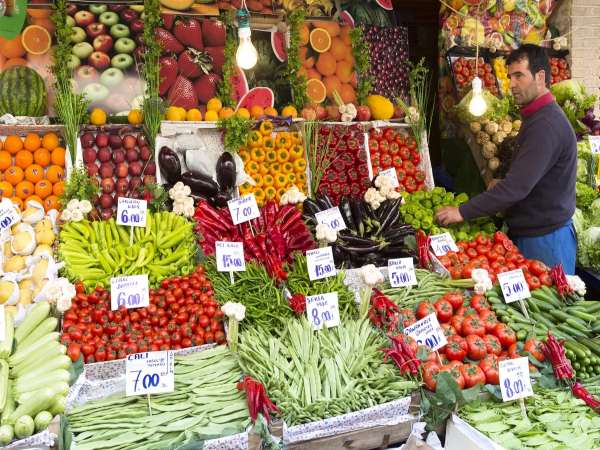Rising Food Inflation And Its Worry For Consumers And The RBI?
Retail inflation, is beginning to gain momentum once again and a large part of it has to do with food inflation. In April, supply disruptions took a toll and reversed the softening of food inflation, which surged to 8.6 per cent from 7.8 per cent in March, 2020. Prices of vegetables, cereals, milk, pulses and edible oils and sugar emerged as pressure points.

Worry for consumers
Late last year, food inflation soared on the back of rising vegetable and onion prices. In fact, food inflation rose to 10.01%, entering double digits for the first time since December 2013. The weightage of food items in the overall consumer price index is as high as 40 per cent, which means any rise in food prices can move the consumer price index higher.
CPI Food Weightage
| Products | Weightage |
| Cereal and products | 24.8% |
| Egg, fish and meat | 10.3% |
| Milk and milk products | 16.9% |
| Oil and fats | 9.1% |
| Fruits | 7.4% |
| Vegetables | 15.5% |
| Pulses and products | 6.1% |
| Sugar and condiments | 3.5% |
| Spice | 6.4% |
The problem is that in the next few months, we might see food prices rising all over again. In fact, fish and meat, which forms 10.3 per cent of the Food weight, have already risen.
Apart from this, the sowing season may have been adversely impacted due to the lockdown, which could have a bearing on food output and prices in the next few months.
All of this could have an impact on the consumers.
Worries for the RBI?
The Reserve Bank of India has an important mandate to maintain price stability. This means, it has to control prices, with all the available tools, including the Cash Reserve Ratio and the repo rate.
Presently, the Reserve Bank of India is targetting an inflation rate of 4 per cent. India's retail inflation or consumer price index (CPI) in March was way above the Reserve Bank of India's comfort level at 5.84 per cent.
So what does the RBI do when inflation rises?
The Reserve Bank of India uses the tools at its disposal to control inflation. When inflation is high, it hikes the repo rates. These rates are interest rates at which the RBI lends money to banks.
Since borrowing becomes costlier for banks, they in turn increase interest rates. What happens is that there is less demand for loans and hence products and this tends to reduce inflation. However, what does also happen is that it tends to push growth lower.
So, when repo rates or interest rates are hiked to control inflation, growth may get impacted. So, RBI has to strike a balance between growth and inflation.
With food inflation likely to rise, which could impact the CPI or retail inflation, the RBI may have a tough time striking a balance between growth and inflation. While inflation would be rising, growth would be falling sharply. In fact, it is highly possible that GDP growth maybe negative this year.
It's not a happy situation to be in, especially when you have to tame inflation, even while ensuring growth.
































